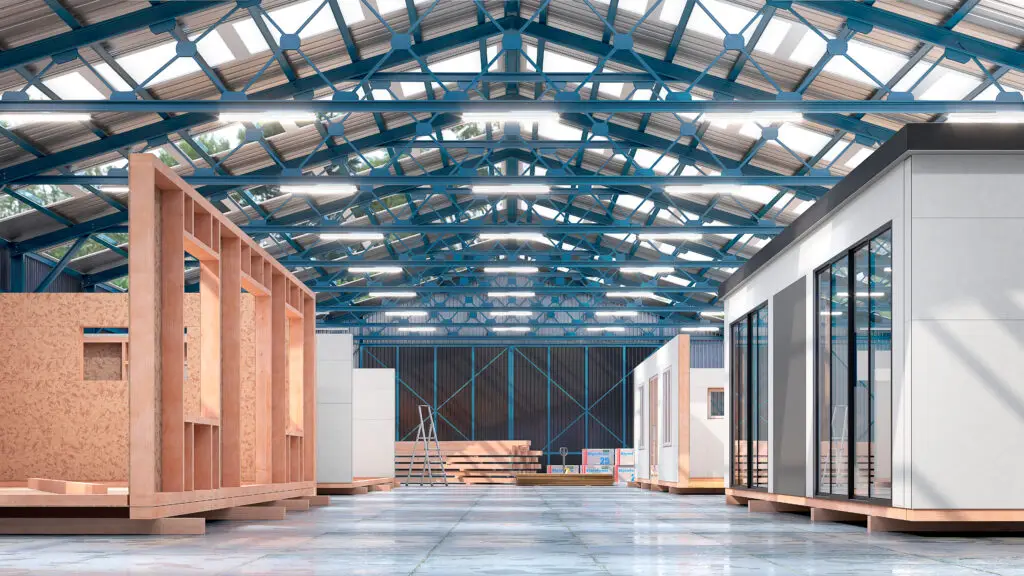
As the real estate industry evolves, modular homes are emerging as the modern way to build. Their innovative construction method, conducted in controlled factory environments, offers numerous advantages over traditional on-site building. Let’s explore why modular homes represent the future of real estate and how they address common issues found in on-site construction.
Modular homes are not just a trend; they represent a significant shift in how we approach homebuilding. Their ability to address common issues with on-site construction, combined with their resiliency and modern features, make them the future of real estate. By focusing on modular construction, we can create better, more sustainable homes that meet the demands of contemporary living.

Controlled Environment – Modular construction takes place in a factory setting, which ensures consistent quality and minimizes the risk of weather-related delays. This controlled environment allows for stringent quality control measures, resulting in homes that meet high standards of construction and finish.
Speed and Efficiency – The efficiency of modular construction is unmatched. While the modules are being built in the factory, site preparation can occur simultaneously. This parallel process significantly reduces the overall construction time, allowing homeowners to move into their new homes faster.
Traditional on-site construction faces several challenges that modular construction overcomes:
Structural Integrity – Modular homes are designed to be transported, which means they are built to withstand the rigors of travel. This requirement often results in stronger, more durable structures compared to traditional homes. Reinforced framing and robust materials contribute to the overall resilience of modular homes.
Environmental Control – The factory environment allows for precise control over building conditions, ensuring materials are stored properly and protected from moisture. This control reduces the risk of defects and ensures high-quality construction.
Sustainability – Modular construction is inherently more sustainable. The factory setting reduces material waste, and many modular homes are built with eco-friendly materials. Additionally, the energy efficiency of modular homes helps reduce their overall environmental impact.
Design Flexibility – Modular homes offer extensive customization options, allowing buyers to choose from a variety of floor plans, finishes, and features. This flexibility enables homeowners to create a space that reflects their personal style and meets their specific needs.
Energy Efficiency – Modern modular homes are designed with energy efficiency in mind. High-quality insulation, energy-efficient windows, and advanced HVAC systems contribute to lower utility costs and a smaller carbon footprint. Many modular homes also incorporate smart home technology, enhancing convenience and control over energy usage.
Financing Options – Financing a modular home can be different from traditional home financing. Buyers should explore options such as construction loans that convert to permanent mortgages once the home is complete. Working with lenders familiar with modular construction can streamline the financing process.
Resale Value – A common concern is the resale value of modular homes. However, the high-quality construction and modern features often lead to increased durability and a strong resale value. The growing demand for energy-efficient and customizable homes further enhances their market appeal.
Modular homes are poised to redefine the future of real estate. Their numerous benefits, including speed of construction, quality assurance, cost-effectiveness, and customization options, make them an attractive choice for modern homebuyers. As technology advances and environmental concerns grow, the demand for efficient, sustainable, and resilient housing solutions will continue to rise.
By embracing modular construction, real estate professionals can stay ahead of the curve and provide their clients with innovative housing solutions that meet the needs of today and tomorrow. Modular homes offer a practical and forward-thinking approach to building, ensuring a bright future for the real estate industry.